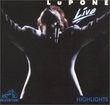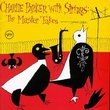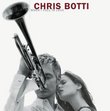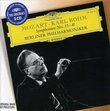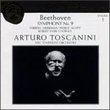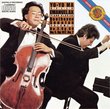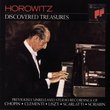| All Artists: Antonio Scotti, Titta Ruffo, Giacomo Puccini, Ruggero Leoncavallo, Giuseppe Verdi, Amilcare Ponchielli, Umberto Giordano, Pietro Mascagni, Walter B. Rogers, Giulio Setti, Ernestine Schumann-Heink, Metropolitan Opera Orchestra, Nellie Melba, Alma Gluck, Enrico Caruso Title: Enrico Caruso: Historical Recordings 1902-1914 Members Wishing: 0 Total Copies: 0 Label: Gala Release Date: 6/6/2000 Genres: Pop, Classical Styles: Opera & Classical Vocal, Historical Periods, Modern, 20th, & 21st Century Number of Discs: 1 SwapaCD Credits: 1 UPCs: 675754392925, 759547030420, 8712177000098 |
Search - Antonio Scotti, Titta Ruffo, Giacomo Puccini :: Enrico Caruso: Historical Recordings 1902-1914
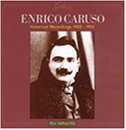 | Antonio Scotti, Titta Ruffo, Giacomo Puccini Enrico Caruso: Historical Recordings 1902-1914 Genres: Pop, Classical
|
Larger Image |
CD DetailsSimilarly Requested CDs
|
CD ReviewsA truly great tenor 06/25/2000 (5 out of 5 stars) "Caruso appears to have been a bit of an acquired taste- one that I certainly have acquired somewhere. In his voice one can hear true warmth and lyric beauty. He also had power, which allowed him to shine in such a role as Rodolfo. Similarly the other tracks on this CD are very fine, demonstrating an all round capability that few posess and that make singling out arias for praise very difficult. Of course the problem of sound quality remains, but it is not so bad as to to prevent you enjoying this legendary voice." The Primacy of Caruso's Voice Recovered from Ancient Recordi Ben J Korgen | 06/21/2010 (5 out of 5 stars) "Many writers describe Enrico Caruso as the greatest operatic tenor in history. In the early 1900s, rustic recorders captured Caruso's voice for posterity. Compared with modern recording equipment, the pioneering machines of Caruso's time blended high distortion and scratchiness with low frequency response.
Today, acoustics experts use noise cancellation and other techniques to convert seemingly hopeless old recordings into surprisingly listenable CD tracks. The tracks on this CD include twenty three passages from some of the world's greatest operas, all sung by Caruso from 1902 to 1914. Opera lovers will find these Caruso recordings remarkable for at least three reasons. First, they capture Caruso's voice so well, listeners will forget that the restored recordings are technically inferior to modern ones. Second, opera lovers will find it difficult to improve on the selection of passages used. Third, these recordings are good enough in quality to allow discriminating listeners to estimate differences in talent between Caruso and modern operatic tenors. Listeners can begin estimating by listening to a favorite passage on this Caruso CD. Then listen to the same passage again, but pay close attention to the extent to which the quality of Caruso's background music is below modern standards. Now listen to the same passage sung by modern tenor A and take special note of the exceptionally high quality of A's background music. Finally, provide an imaginary boost to Caruso's background music to make it equal to A's background and apply the same boost to Caruso's singing. The result is, if Caruso's singing is anywhere near as good as A's without a boost in quality, it would be much better with a quality equalizing boost. " |

 Track Listings (23) - Disc #1
Track Listings (23) - Disc #1

